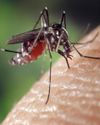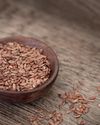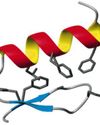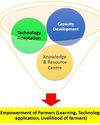Silicon has numerous uses in industrial products, cosmetics, and medicine. Interestingly, studies published over the last couple of decades have demonstrated its benefits to crop plants (Deshmukh et al., 2017). . Fundamental studies by Japanese scientists showing high levels of silicon deposition in grasses have paved the way for understanding the role of silicon in plants. Numerous recent reports have shown a link between silicon deposition and stress tolerance in plants. Silicon supplementation has been shown to improve resilience in plants under a variety of stress conditions including diseases and environmental stress like drought, cold and waterlogging. The silicon-derived benefits have been reported more frequently in plant species known to accumulate high levels of silicon. Despite thousands of research reports showing siliconderived benefits to plants, silicon was never being considered an essential element. Since most of the plant species can complete their life cycle without silicon supplementation. But considering the benefits of silicon particularly under stress conditions, International Plant Nutrition Institute (www.ipni.net) has categorized it as a beneficial element for plant growth. Consequently, many companies have launched silicon-based fertilizers for crops like rice, wheat, maize, sugarcane, and vegetables. Silicon-based fertilizers are gaining popularity in America, Africa, and particularly in South Asian countries like India, Pakistan, and Bangladesh. Major concerns for use of silicon-based fertilizers include the availability of the source, sustainability, and most importantly the risk to the environment.
Silicon to improve resistance against plant diseases
Bu hikaye Scientific India dergisinin March - April 2022 sayısından alınmıştır.
Start your 7-day Magzter GOLD free trial to access thousands of curated premium stories, and 9,000+ magazines and newspapers.
Already a subscriber ? Giriş Yap
Bu hikaye Scientific India dergisinin March - April 2022 sayısından alınmıştır.
Start your 7-day Magzter GOLD free trial to access thousands of curated premium stories, and 9,000+ magazines and newspapers.
Already a subscriber? Giriş Yap

An insight into Chandipura virus in India
Recently lot of news regarding disease due to Chandipura virus has emerged in various newspapers/magazines. After reading the reports published it seems that thing is still brewing in the natures nest and it could affect mankind.

Why elephants never forget?
An elephant has a very large brain for its size and the 'temporal lobe' region responsible for memory is more developed with a greater number of folds - this results in powerful abilities to 'download' important survival data such as where to find food and water, and who is friend or foe.

Use of Algae for Wastewater Treatment Containing Heavy Metals
Wastewater treatment is a critical environmental issue particularly when it comes to the removal of heavy metals.

Nano priming Seeds: A Small Innovation Sparkling Big Advances in Germination
Nanopriming is an emerging agricultural technique where the seeds are treated with nanoparticles to improve their germination, growth, and overall performance.

Nobel Laureates in Physics 2024: Revolutionizing AlThe Physics Foundations Behind Machine Learning
This year's two Nobel Laureates in Physics have used tools from physics to develop methods that are the foundation of today's powerful machine learning.

Revolutionizing Biology: The 2024 Nobel Prize in Chemistry Celebrates Breakthroughs in Protein Design and Structure Prediction
The Nobel Prize in Chemistry 2024 is about proteins, life's ingenious chemical tools.

New findings on animal viruses with potential to infect humans
Scientists investigating animal viruses with potential to infect humans have identified a critical protein that could enable spillover of a family of organisms called arteriviruses.

Father-Daughter Team Decodes Mars' Alien Signal
There is no definitive answer to whether aliens exist, but there is a lot of work being done to find out:

Krishi Vigyan Kendras: Working for Farmer's Welfare
Krishi Vigyan Kendras (Farm Science Centres) are the District level institution serving as an agriculture knowledge resource & capacity development centre which plays indispensable role in front line extension regarding agriculture system in scientific way.

Sixth generation Computer: The future computing technology
We are in a transition towards a digital world, where everything will be dealt with in digital format.